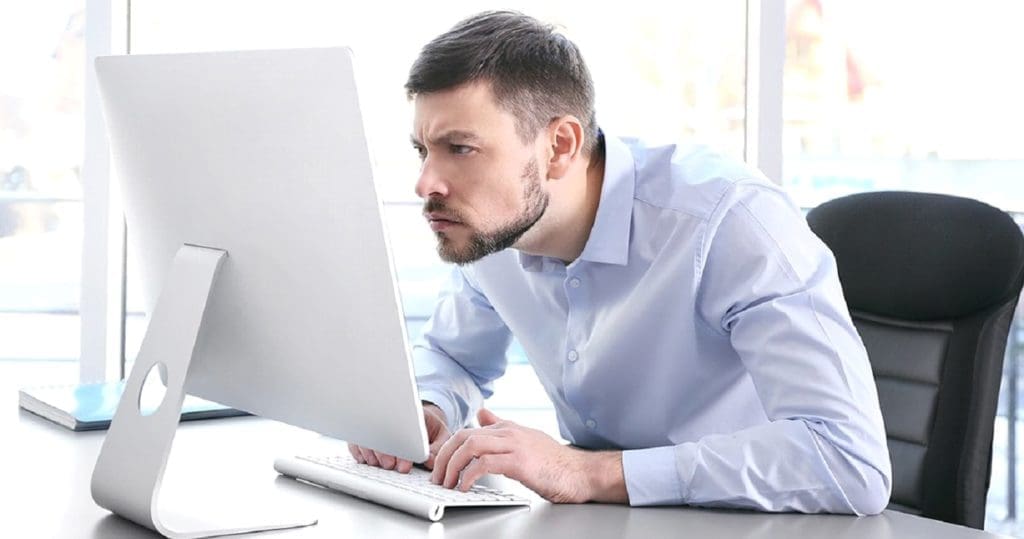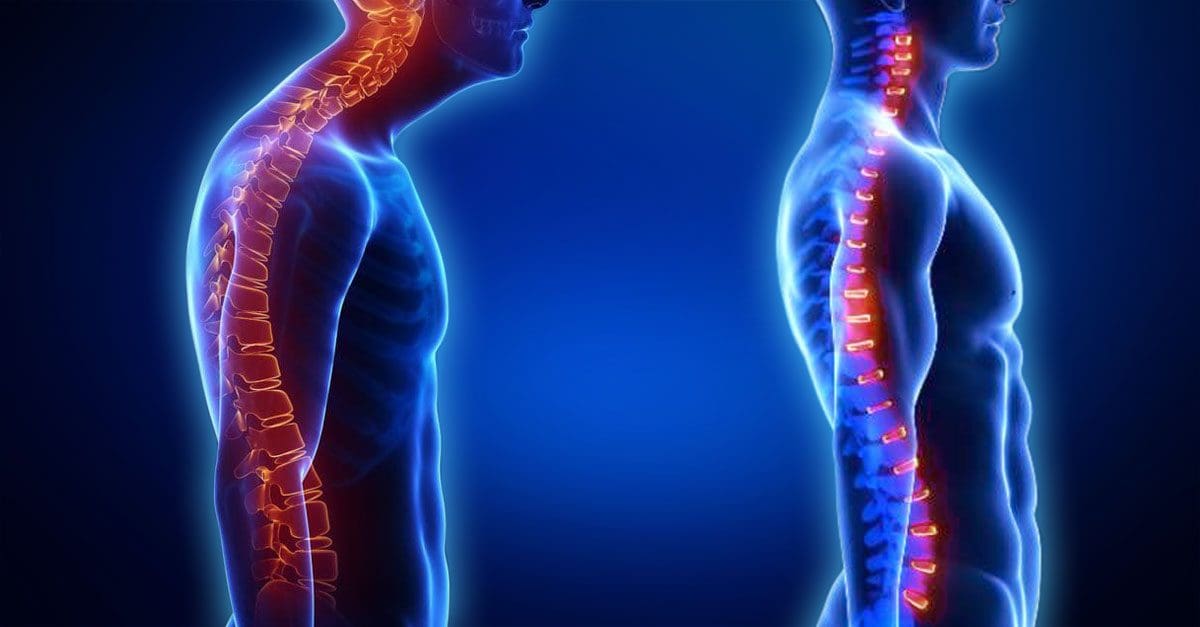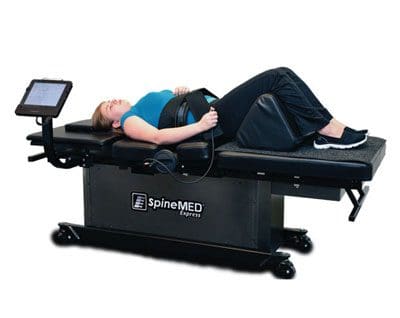Mataupu
faʻatomuaga
The body is a fine-tuned machine that is on the move constantly. Whether it is gaioiga i aso uma, lifting objects, going to work, or doing some sort of gaoioiga faaletino, the body is on the move and needs to rest when it is tired. Sometimes different scenario factors can affect the body like an manuʻa, a condition that can cause tali autoimmune, or ordinary factors like reading a book, texting, or working with a computer can cause the body to slouch or develop poor posture. Luckily all is not lost as there are ways to help alleviate poor posture through non-surgical treatments. Today’s article focuses on poor posture, how it affects the back, and how decompression therapy can help individuals in correcting their poor posture. E ala i le fa'asino atu o tagata gasegase i 'au'aunaga agava'a ma tomai fa'apitoa i togafitiga fa'ama'i fa'ama'i. I lena itu, ma pe a talafeagai, matou te fautuaina o matou gasegase e faʻafesoʻotaʻi a matou fomaʻi faʻapitoa e faʻatatau i a latou suʻega. Matou te iloa o a'oa'oga o le ki lea i le tu'uina atu o fesili taua ia matou 'au'aunaga. Dr. Alex Jimenez DC o loʻo tuʻuina atu lenei faʻamatalaga e naʻo se auaunaga faʻaleaʻoaʻoga. Tuuese
E mafai ona ufiufi e la'u inisiua? Ioe, e mafai. Afai e te le mautinoa, o le sootaga lea i kamupani inisiua uma matou te ufiufi. Afai ei ai ni au fesili, faʻamolemole valaʻau Dr. Jimenez ile 915-850-0900.
What Is Poor Posture?
Have you ever felt a dull ache around your shoulders and neck? How about hunching forward while working on the computer and feeling a pulled muscle on the side of your back? Or how about walking with a slouch? These types of scenario factors are all examples of poor posture. Ua maua suesuega suʻesuʻe that when individuals do a combination of everyday actions, it can develop over time into a poor posture in the future. Poor posture does to the body is that it starts to weaken the lower back tissues and causes the back muscles, spinal discs, and joints to be pushed over the limit. This causes discomfort and pain to the body and the back.
O isi suʻesuʻega suʻesuʻega ua maua that the effects of poor posture cause a disturbance in the symmetry body axis that causes the body to develop poor posture. It also stated that when a person has developed poor posture and continues to perform work-related tasks in a slouch or hunched position, it can increase their chances of having back pain.
How Does Poor Posture Affect The Back?
Since poor posture happens unintentionally to everybody. It causes them to hunch forward for long periods while they are texting, reading a book, or working on their laptop, which can cause the neck and back muscles to strain. Suesuega suesuega ua faaalia that people who have poor posture and chronic low back pain have altered activation muscle patterns in their trunk muscles. What this does, is that it causes the trunk muscles that are around the body to decrease their movement, become stiff and rigid, and causes postural instability. Ua taʻua e isi suʻesuʻega suʻesuʻega that poor posture can contribute to prolonged sitting and standing, awkward positions, and heavy physical work can cause low back pain. Luckily there are ways to correct poor posture while also alleviating low back pain on the body.
DRX9000 Decompression Therapy For Poor Posture-Video
Do you feel intense pain in your neck and shoulders after working on the computer all day? How about stiffness around your torso area? How about aches on your lower back? This could be due to poor posture, and spinal decompression therapy can help alleviate that. The video above shows how the DRX9000, a decompression therapy machine, can help with poor posture and alleviate low back pain symptoms. Ua taʻua i suʻesuʻega suʻesuʻega that when individuals sit for more extended periods, it can cause discomfort to the lower back muscles and cause the individual to be in a slouched sitting position. Decompression therapy helps the individual find relief by gently pulling on the spine and allowing the necessary nutrients to return to the spine. This causes the tense back muscles to relax and increases the spinal discs’ height. Suppose you want to learn more about how decompression therapy can benefit you. In that case, this feso'ota'iga o le a fa'amatalaina what spinal decompression therapy does to help correct poor posture.
How Decompression Therapy Can Help With Poor Posture
Even though it is natural for people to develop a hunched position while doing everyday activities, this can lead to poor posture if not corrected right away. Sometimes it can happen naturally as the body ages causing the muscles to hunch over and straining the back muscles. Luckily there are ways to help many individuals that have developed poor posture. Some people do faʻamalositino to strengthen the back muscles by working in their correct forms. Others go to togafitiga fa'ama'i to have their spine realigned, and some go to spinal decompression therapy to relieve back pain and get their spine gently pulled. Ua maua suesuega suʻesuʻe that decompression therapy uses non-gravity to adjust the direction angle of how the traction will ease the pressure of the intervertebral disc on the spine. This will help many individuals who have suffered from poor posture. O isi suʻesuʻega ua faʻaalia that decompression therapy can also reduce the ligament stenosis around the spine, decrease the pressure on the spinal disc and nerve roots, and slowly help correct the individual’s posture. This allows many individuals to feel an instant relief on their back and become more mindful of their posture.
iʻuga
Having a correct posture can prevent back issues like low back pain, stiff muscles, and compressed nerves that can cause pain to an individual. Naturally, as the body age, it causes the back muscles to lean forward and cause strain on the lower back, shoulders, and neck. This causes discomfort and muscle weakness that can hinder a person’s daily life. Luckily, treatments like spinal decompression can help individuals slowly get their posture back and alleviate their lower back pain. Spinal decompression allows the spine to be stretched out gently and causes an increase in the height of the spinal disc. This allows the individual to be feeling instant relief on their back and continue on their wellness journey.
mau faasino
Vad, Vijay. “Is Poor Posture Causing Your Back Pain?” Spine, Soifua Maloloina, 9 Ian. 2020, www.spine-health.com/blog/poor-posture-causing-your-back-pain.
Choi, Jioun, et al. “Effects of Flexion-Distraction Manipulation Therapy on Pain and Disability in Patients with Lumbar Spinal Stenosis.” Tusi o le Saienisi Togafitiga Faʻafomai, The Society of Physical Therapy Science, Iuni 2015, www.ncbi.nlm.nih.gov/pmc/articles/PMC4500015/.
Cramer, Holger, et al. “Postural Awareness and Its Relation to Pain: Validation of an Innovative Instrument Measuring Awareness of Body Posture in Patients with Chronic Pain.” BMC Musculoskeletal Faʻaletonu, BioMed Tutotonu, 6 Aperila 2018, www.ncbi.nlm.nih.gov/pmc/articles/PMC5889545/.
Jung, Kyoung-Sim, et al. “Aafiaga o le Nofo Faaumiumi ma Tulaga Fa'apa'u i luga o Muscular Fatigue o le Tama'italavou e iai ma e aunoa ma le tiga faifaipea i lalo ifo.” Fomaʻi (Kaunas, Lituania), MDPI, 23 Tesema 2020, www.ncbi.nlm.nih.gov/pmc/articles/PMC7822118/.
Nowotny, Janusz, et al. “Body Posture and Syndromes of Back Pain.” Ortopedia, Traumatologia, Rehabilitacja, US National Library of Medicine, 2011, pubmed.ncbi.nlm.nih.gov/21393649/.
Swain, Christopher TV, et al. "Leai se maliega i luga o le mafuaʻaga o le tuʻuina atu o le tui poʻo le faʻaalia o le tino ma le maualalo o tiga i tua: o se iloiloga faʻapitoa o iloiloga faʻapitoa." Tusitala o Biomechanics, US National Library of Medicine, 26 Mati 2020, pubmed.ncbi.nlm.nih.gov/31451200/.
Tuuese
Faʻataʻitaʻiga Tomai o Faʻataʻitaʻiga
O faʻamatalaga o loʻo i luga "Le Fa'aletonu Tulaga Fa'amama Fa'amama i le Togafitiga Decompression"E le o fa'amoemoe e sui ai se mafutaga ta'ito'atasi ma se fa'apolofesa fa'alesoifua maloloina agava'a po'o se foma'i laiseneina ma e le o se fautuaga fa'afoma'i. Matou te fa'amalosia oe e fai fa'ai'uga fa'alesoifua maloloina e fa'atatau i au su'esu'ega ma faiga fa'apaaga ma se tagata tomai fa'apitoa tau soifua maloloina.
Blog Fa'amatalaga & Va'aiga Talanoaga
O matou fa'amatalaga lautele e fa'atapula'a ile Chiropractic, musculoskeletal, vaila'au fa'aletino, soifua maloloina, fa'asoa etiological fa'alavelave viscerosomatic i totonu o fa'ata'ita'iga fa'apitoa, somatovisceral reflex fa'ata'ita'iga fa'amanino, fa'alavelave fa'aletonu, fa'afitauli ma'ale'ale o le soifua maloloina, ma/po'o tala fa'afoma'i aoga, autu, ma talanoaga.
Matou te tuuina atu ma tuuina atu felagolagomai falema'i faatasi ai ma tagata tomai faapitoa mai matata eseese. O fa'apitoa ta'ito'atasi e fa'atonutonuina e la latou fa'apolofesa lautele o fa'ata'ita'iga ma a latou pulega fa'atulafonoina. Matou te fa'aogaina tulafono fa'alesoifua maloloina ma le soifua manuia e togafitia ma lagolago ai le tausiga o manu'a po'o fa'aletonu o le musculoskeletal system.
O a matou vitiō, pou, mataupu, mataupu, ma malamalamaga e aofia ai mataupu tau falemaʻi, mataupu, ma mataupu e fesoʻotaʻi ma tuusaʻo pe le tuusaʻo le lagolagoina o la matou faʻataʻitaʻiga masani.*
O lo matou ofisa sa taumafai lava e tu'uina atu fa'amatalaga lagolago ma ua fa'ailoa mai su'esu'ega su'esu'ega talafeagai po'o su'esu'ega e lagolagoina a matou pou. Matou te saunia ni kopi o lagolagoina suʻesuʻega suʻesuʻega avanoa i tulafono faʻatonutonu laupapa ma tagata lautele pe a talosagaina.
Matou te malamalama o matou aofia ai mataupu e manaʻomia se faʻaopopo faʻamatalaga o le auala e ono fesoasoani ai i se faʻapitoa tausiga fuafuaga poʻo togafitiga togafitiga; o lea, ia toe talanoaina le mataupu mataupu i luga, faʻamolemole lagona le saoloto e fesili Dr. Alex Jimenez, DC, pe faʻafesoʻotaʻi i matou 915-850-0900.
Ua matou o mai e fesoasoani ia oe ma lou aiga.
faamanuiaga
Dr. Alex Jimenez D.C., MSACP, RN*, CCST, IFMCP*, CIFM*, atn*
imeli: faiaoga@elpasofunctionalmedicine.com
Laisene o se Fomaʻi o Chiropractic (DC) i Texas & New Mexico*
Texas DC Laisene # TX5807, New Mexico DC Laisene # NM-DC2182
Laisene ose Tausima'i Resitala (RN*) in Florida
Florida Laisene RN Laisene # RN9617241 ( Pule Nu. 3558029)
Tulaga Fa'atasi: Laisene Tele-Setete: Fa'atagaina e Fa'ata'ita'i i totonu 40 States*
Dr. Alex Jimenez DC, MSACP, RN* CIFM*, IFMCP*, ATN*, CCST
La'u Pepa Pisinisi Digital








